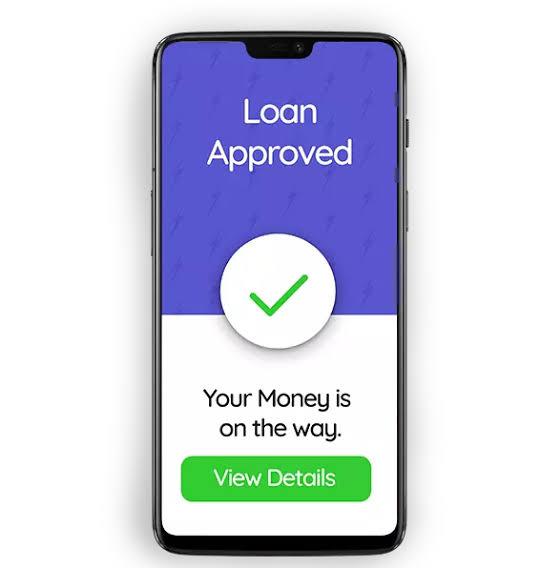From Help to Harm: Loan apps exploit economic crisis to defraud, harass Nigerians
The proliferation of loan apps in Nigeria has brought with it a quick, accessible way for people to borrow money. Still, it has also introduced outrageous, exploitative practices in the form of high interest rates.
Loan apps are gaining momentum as desperate Nigerians turn to them for quick cash because of the challenging financial situation and minimal access to other means of financing.
Unemployment, inflation and the cost of living have all risen sharply in recent years in Nigeria, fuelling a burgeoning quick – or payday – loan industry.
In typical cases, Nigerians requested loans to cover basic things like food, transport costs and medical bills.
Palmpay, Fair Money, and Palm Credit, among many others, are some of the examples of digital lending platforms that have become places of choice for many Nigerians.
READ ALSO: Amidst hardship, Nigerians at mercy of online loan apps
Filling out forms, verifying physical addresses, and providing customer identities are all mandatory steps in loan application procedures in commercial and microfinance banks.
However, the emergence of digital lending platforms has changed all that, making loan applications much easier, simpler and faster.
Unfortunately, most of the application process worked “like a death trap”, and for many people outstanding debts of as little as 500 naira quickly ran to thousands of naira.
Adverts for quick loans have appeared at bus stops, street corners, websites, messaging and social media apps.
Loan apps offer outrageous interest rates
Loan Sharks are having a field day in Nigeria, enjoying high Interest Rates and operating in a system with Gross Under-regulation.
READ ALSO: Students lament loan delays amid tuition deadline, exam anxiety
For example, some loan apps offer a borrower a loan of ₦70,200 for a 60-day term with the agreement to repay ₦95,472, an outrageous fee of ₦25,272.
These loan apps operate with greed in an unregulated, unchecked setting, making life harder for already struggling citizens.
These interest rates can be monthly or daily, with a minimum of 9 per cent and a maximum of 48 per cent monthly.
Interest rates for loans in some cases may vary depending on loan amounts, repayment periods, and borrowers’ credit scores.
For Palmcredit, interest rate ranges from 14 per cent to 24 per cent monthly, while they go from 2 per cent to 30 per cent every month for Carbon. Similarly, Palmpay goes between 0.60 per cent and 18 per cent monthly, while Aella charges 6 per cent to 20 per cent every month.
READ ALSO: Young Nigerians selling BVN, NIN, others to fintechs for fraudulent activities — EFCC
These apps deploy users’ smartphone data to verify lenders’ eligibility and create personalised loan offers. They assess interests based on a set of different criteria.
As struggling Nigerians continue to grapple with this menace and fall victim to their high interest rates and harassment daily, regulatory bodies such as the Central Bank of Nigeria and the Federal Competition and Consumer Protection Commission have been urged to step up and check the excesses of these fintech companies.
The lacuna in oversight has emboldened loan apps to charge interest rates as high as 30-50% within short durations, a fact that has seen many borrowers, unable to take the heat, deliberately defaulting on their loans in some sort of protest against such exploitative tendencies.
Nigerians have called on regulators to rise to the challenge by making such loan apps a lifeline and not a noose to Nigerians. By fostering transparency, fairness, and ethical practices.
Advanced Harassment
Threatening and demeaning messages are sent to the contacts of the borrower in an attempt to harass and shame those who are struggling with debt repayment.
READ ALSO: Responsible Borrowing: FG to link Nigerians’ credit score to NIN
As a condition for a loan, the application process required access to the client’s contacts, social media accounts, and details of family and friends, where they worked, worshipped and lived.
In case of any delay in repaying a debt, the loan company agent will constantly call and send texts and WhatsApp broadcast messages which later turn to sinister threats to the borrower’s phone contacts.
In January of 2025, a loan app, Delinquent Loans, sparked controversy after sharing photos of 87 debtors online in a bold attempt to recover unpaid loans.
The incident came to light through a series of TikTok videos posted by the app.
Across three separate videos, the platform uploaded pictures of the debtors, each captioned, “Please settle your loans,” as a public reminder to repay their debts.
READ ALSO: POS operatives condemn new directive to register with CAC
The videos drew widespread attention and mixed reactions from social media users.
The loan app’s public shaming strategy has sparked a debate about privacy, ethics, and the legality of such practices. While some support the need for debt recovery, others criticise the method as an infringement on individual rights.
The government adopts curtailing measures
In 2023, the Nigerian government delisted 37 illegal loan apps from the Google Play Store and Apple App Store.
The delisting comes after persistent harassment of Nigerians by the lenders, and the Federal Competition and Consumer Protection Commission (FCCPC) shook up the digital money lending industry.
The commission claims that Google permanently removed delisted loan apps from the Play Store.
READ ALSO: NITDA: Google, TikTok, others paid ₦2.55trn in taxes to FG
The delisted apps were found to engage in illegal activities such as charging exorbitant interest rates, collecting late payment fees, and using abusive language with borrowers.
37 delisted loan apps in Nigeria
They include: Swiftkash App, Hen Credit Loan App, Cash Door App, Joy Cash-Loan Up To 1,000,000 App, Eaglecash App, Luckyloan Personal Loan App, Getloan App, Easeloan Apps, Naira Naija, Cashlawn App, Easynaira App, Crediting App, Yoyi App, Nut Loan App, Cashpal App, Nairaeasy Gist Loan App, Camelloan App, Nairaloan App, Moneytreefinance Made Easy App.
Others include: Cashme App, Secucash App, Creditbox App, Cashmama App, Crimson Credit App, Galaxy Credit App, Ease Cash App, Xcredit, Imoney, Naira Naija, Imoneyplus-Instant, Nairanaija-Instant, Nownowmoney, Naija Cash, Eagle Cash, Firstnell App, Flypay, and Spark Credit.
Punishment for invasion of privacy
In addition to delisting illegal loan apps, the Nigerian government announced that loan apps that send messages to their debtors’ contacts could be prosecuted for invasion of privacy going forward.
In an announcement, the National Information Technology Development Agency (NITDA) said it has received 40 petitions from the public about companies that abuse user data and it appears the agency has started acting on such complaints.
In August, NITDA imposed a 10 million naira ($24,000) fine on Soko Lending Company, owners of Soko Loan – an app launched in September 2018 that has over 1 million downloads on Google Play Store (but which appears to have been taken down as of press time).
READ ALSO: NITDA issues code of practice for online platforms in Nigeria
NITDA, Nigeria’s de facto tech regulator, says it is worried about the harm caused by moneylenders like Sokoloan. And so it is teaming up with the Federal Competition and Consumer Protection Council to enforce privacy rights under the Nigerian Data Protection Regulation (NDPR) enacted in 2019.
Compiled and edited by Gift Luckson
Follow the Neptune Prime channel on WhatsApp:
Do you have breaking news, interview request, opinion, suggestion, or want your event covered? Email us at neptuneprime2233@gmail.com





